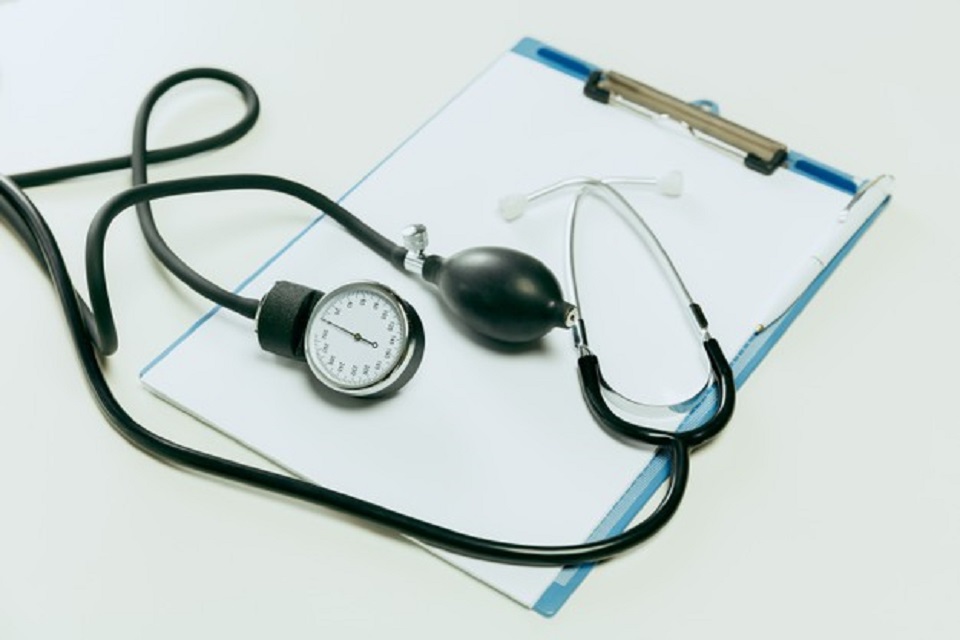Known to be a very common cardiovascular system disease, high blood pressure is also called hypertension.
As the name implies, this condition deals with the force with which blood moves. Like the air in a balloon or gas in a pipe, the arteries are filled with blood to a specific point. The force with which the blood moves against the artery walls as it is circulated throughout the body is known as blood pressure. When air fills a balloon excessively, it may burst. The same thing happens when the blood pressure in the artery is too much; the artery is in danger, and conditions that could be fatal, like stroke, may set in.
A routine checkup can reveal the presence of high blood pressure. Sometimes, you may get to know that your blood pressure is high when you measure it yourself. Should that be the case, make sure you contact your doctor for confirmation. And, of course, the doctor will have a solution for high blood pressure for you. If you are 18 years and above, it is advisable you check your blood pressure. Don’t know where to go for this? Check with your private doctors near you.
How blood pressure is measured
During the test for blood pressure, two numbers will appear in the reading. The first number – one with a higher value is your systolic pressure. This is defined as the force the arteries experience during heartbeats. The second number indicates your diastolic pressure – the force the arteries experience when the heart relaxes between beats.
A healthy baby has a normal blood pressure of 64/40. This value increases to 120/80 as the child grows into a healthy adult. Please note that blood pressure naturally increases and decreases with a change in activity or emotional state. For instance, your blood pressure after escaping a terrible accident or running 5 miles will be slightly high when measured. This is not the same as the value you will get if your blood pressure is measured as you sit in a quiet and comfortable place.
Again, everybody has different blood pressure – this is normal. Other areas of the body also have varying blood pressure. However, when your blood pressure continues to be elevated, consult your doctor for treatment. In simple terms, a consistent rise in blood pressure (hypertension) makes the heart overwork itself. It also hurts blood vessels and damages the kidney, eyes and brain.
What level of blood pressure is considered to be too high?
If at least two times you have a blood pressure reading of 130/80 or higher, your blood pressure is categorised as high.
Should your reading be 180/120 or higher, it is important to get urgent medical attention.
Do you know there is a blood pressure condition called prehypertension? Your doctor may have mentioned this. Here, what happens is that the blood pressure is a little above 120/x<80. The ‘X’ is a value that is less than 80. Quite a number of persons may be diagnosed with this condition. If you have this problem, your chances of having a damaged brain, heart, kidney and arteries are high. Most doctors believe that treatment is needed for prehypertension. But there isn’t any evidence showing that it provides long-term help.
The sad part of hypertension is that most people having this condition are not aware that they do. This is why it is sometimes called a silent killer, as symptoms rarely show up.
When high blood pressure is not treated, severe issues may arise, including:
- A stroke
- Kidney failure
- Heart attack
- Problems with vision
- Heart failure
Patients that are in worse health conditions and have incredibly high blood pressure may have malignant hypertension. If this happens, it is classified as a medical emergency, and immediate help must be sought. Some of the symptoms may be chest pain, weakness, headache, changes in vision, and shortness of breath.
In all these, the good news is that high blood pressure can be managed. For starters, check your blood pressure regularly.
Does everyone suffer from hypertension?
Those with a family history of diabetes, heart disease, and hypertension are commonly affected by high blood pressure.
This condition is also more likely to affect those who:
- Are of an African-American descent
- Are older than age 55
- Are obese
- Are not active
- Drink alcohol heavily
- Smoke
In addition, you are at more risk of having high blood pressure if:
- You use illegal drugs like cocaine
- You eat foods rich in salt
- You use decongestants
- You take medications like NSAIDs, including aspirin and ibuprofen
Essential hypertension
When the cause of high blood pressure cannot be traced, it is termed essential hypertension. A very high number of persons are diagnosed with this condition.
Hypertension can be genetically transferred. Factors like race and age are also determinants.
Again, the choice of food and lifestyle is also factors affecting essential hypertension. It is essential to note the relationship between salt and high blood pressure. So that you know, those who live on the Northern islands of Japan are the highest global salt consumers. They will likely have high blood pressure.
Most persons with hypertension are sensitive to salt. This implies that if they eat more salt than is necessary, their blood pressure will be high.
Other conditions that are associated with essential hypertension:
- Stress
- Diabetes
- Overweight
- Too much alcohol consumption
- Zero physical activity
- Low levels of calcium, magnesium and potassium
Secondary hypertension
If a cause can be linked directly to a high blood pressure upon diagnosis, it is defined as secondary hypertension. A prevalent cause of this condition is kidney disease.
Tumors can also trigger high blood pressure.
Conditions that make the small glands located on top of the kidney, known as adrenal glands,give off large amounts of hormones may also cause high blood pressure. Contraceptives or birth control pills, particularly those containing estrogen, can raise blood pressure.
What about pregnancy? This, too, can also elevate the blood pressure.There are other medications that can lead to high blood pressure as well.
Consult your doctor to know if there are substances you consume that could drive your blood pressure upwards. If there are, your doctor will let you know.
Final words
High blood pressure is a silent killer. Many conditions can trigger hypertension, including diet and lifestyle.
This condition can also be classified based on whether the underlying cause can be determined or not.An excellent way to know if your blood pressure is high is to have a regular checkup.
Should you discover that you have high blood pressure that has gone over the edge, talk with your private GP about treatment.


